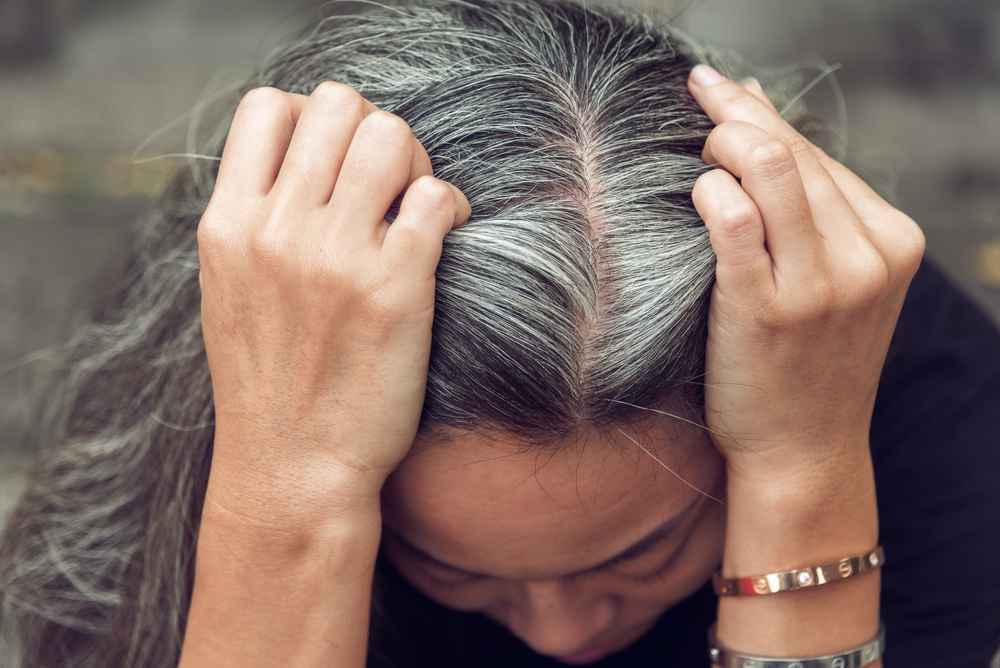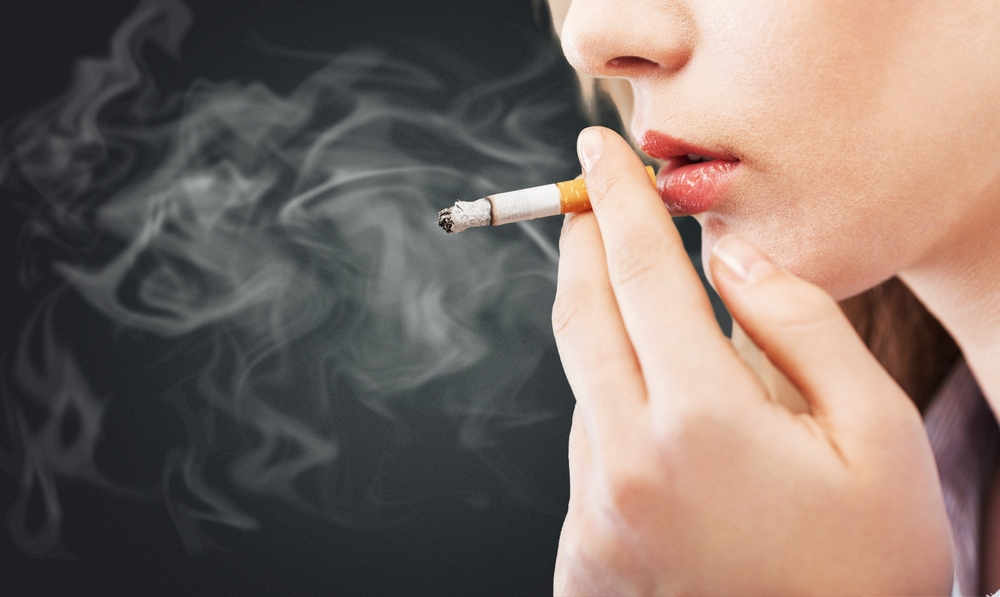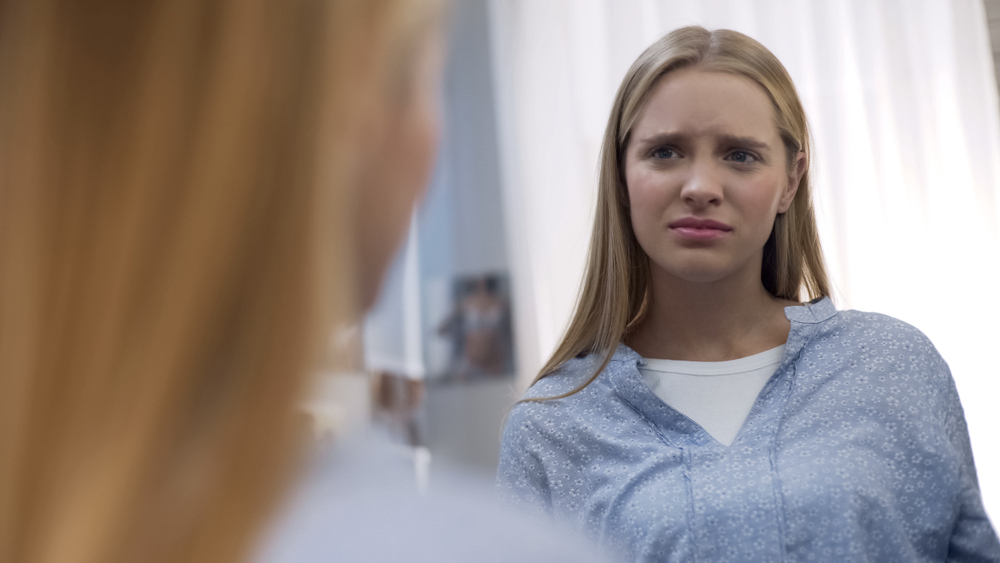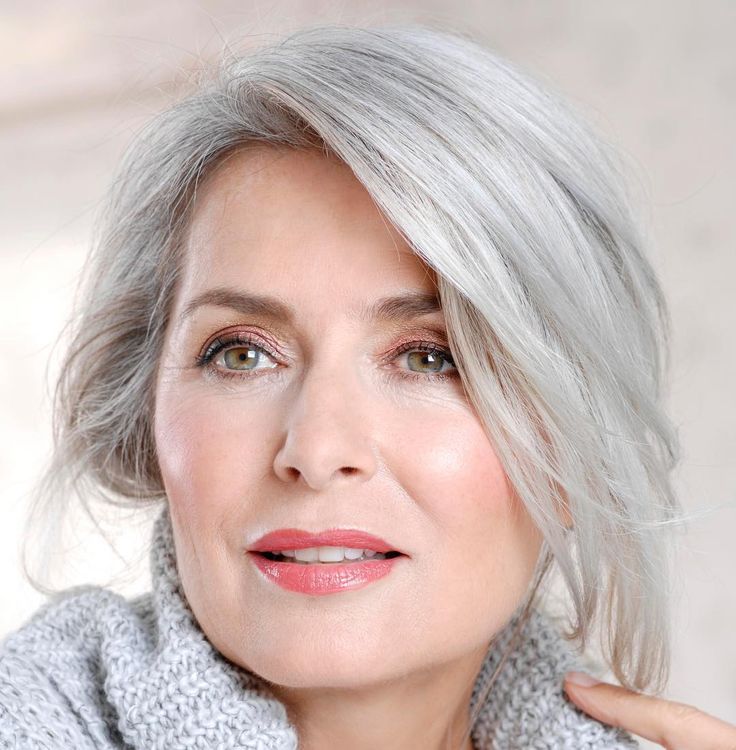What could possibly be the cause of all that gray hair, which comes in early? Here are the factors that can play a role in the premature graying of hair.
Although gray hair is a trendy hair dye color, many people don’t go gray by choice. And there are different factors that contribute to the premature aging process.

By waewkid / shutterstock.com
Technically, premature graying is defined as graying before the age of 20 if you have white skin, or before the age of 30 if you are a person of color. But having gray hair in your 20s, 30s, or 40s might seem too early. In general, gray hair appears when melanin (pigment or natural color) stops forming. In general, 74% of people aged 45 to 65 will have gray hair with an intensity of about 27%, according to a 2012 survey in the British Journal of Dermatology. However, there are a lot of variables. Why is this happening? Here are the reasons why your hair may turn gray sooner than you would like.

By Roman Samborskyi / shutterstock.com
Your mother (or father) turned gray young
Gray hair is already in your genes, says Doris Day, associate professor of dermatology at New York University’s Langone Medical Center and author of Forget the Facelift. In a new study published in Nature Communications where the hair characteristics of 6,000 Latin American subjects were analyzed, we were able to isolate a genetic variant that was indeed linked to graying. Like baldness, genes for white hair come from both sides of the family, concludes the dermatologist.

By docstockmedia / shutterstock.com
You may have an autoimmune disease
An autoimmune skin disease, alopecia areata, can lead to the overgrowth of gray hair. According to the National Alopecia Areata Foundation (NAAF), people with this condition experience small, smooth, round patches on their skulls, and they can become completely bald in their heads and body. “The reason is that the immune system attacks the follicles in your hair and body hair and causes them to fall out,” says Dr. Day. When they come back, they all grow white. ” According to the NAAF, 6.8 million Americans have or will suffer from this disease. If you notice that you are losing too much hair or discovering patches of baldness, see a dermatologist.

By 24Novembers / shutterstock.com
You live in a polluted environment
Pollutants can cause early graying, according to data from the Library of Congress. Studies suggest that chemical agents generate free radicals – or oxidative stress – which interfere with melatonin production and accelerate the aging of the hair system. As soon as hair and hairs come out of the follicle, they die, adds Dr. Day. “What happens at the follicle level will have the biggest impact,” she says. Environmental factors do matter, of course, but it’s other factors, like stress, that really influence the appearance of gray hair. ”

By Billion Photos / shutterstock.com
You are exposed to cigarette smoke
Exposure to cigarette smoke can alter the color of your hair, regardless of whether you or anyone in your home is addicted to cigarettes. Research published in 2013 indicates that smokers are 2.5 times more likely to become graying prematurely – arguably due to the astronomical amounts of free radicals produced by smoking tobacco. Gray hair is just one more reason to crush!

By Motortion Films / shutterstock.com
You are experiencing a hormonal change
A quick glance at a photo of yourself dating back ten years or so will make you realize that your hair is not the same. Due to hormones, your hair can change in texture, density, and color over time. “This phenomenon becomes more evident in your thirties,” observes Dr. Day. It is around this age that people start to consult and complain about these problems. ”
And of course, there are women in their 50s going through menopause who don’t have a single gray hair. Three factors are assumed here: genetics, environment, and hormonal changes. Experts are still trying to understand how hormones (estrogen, progesterone, cortisol, etc.) influence graying, adds the dermatologist.

Your age…
You might not be ready to go gray, but your hair is. The production of melanin – which gives your hair its pigment – decreases with age. After your 30s, each decade increases your chances of becoming graying by 10% to 20%, according to data from the Library of Congress, the US national library. Even though some of us keep our natural color for longer, there is something inevitable: sooner or later your hair will turn white.
